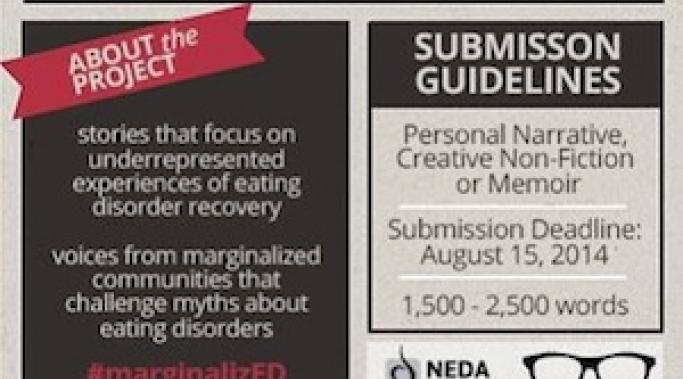Blogs
Sometimes I feel strange and different from healthy people. Perhaps we internalize stigma because we feel a deep sense of shame. We’re offbeat, eccentric, weird and ashamed.
Shame makes me want to hide the real me. I don’t want others to see the real me, the one who is embarrassed to be thought of as mentally ill. I don’t want HealthyPlace readers to know it either because I’m afraid they might stigmatize me the other way, perhaps get angry with me because I still sometimes succumb to the disconcerting voice of stigma.
Looking back on my younger years, my early 20s to be exact, I recall life being so different. My most significant worries were breaking up with, yet again, another boyfriend, choosing which nightclub to frequent with my girlfriends for the weekend, and what bikini I was going to wear to the beach for the approaching summer season. There were barely any worries as I was an avid social butterfly, and made new friends everywhere I went, and most especially I never had a problem being social.
I’m going to start my first post off on my soapbox regarding a pet peeve of mine: mental illnesses or conditions like attention deficit/hyperactivity disorder (ADHD) or attention deficit disorder (ADD) being used as adjectives to describe behaviors, personalities, or people. You know, things traditionally identified as nouns. This post is not the first someone has written about this – and it won’t be the last. It merits repeating.
Have you ever found yourself in a situation where even though what had already happened was minor, you were aware that it could have lead to a more serious situation? The best example I can come up with is a three-year-old with matches. What is actually happening is a toddler standing there holding a pack of matches. What adults envision is the entire house engulfed in flames.
Borderline personality disorder (BPD) is a mental health illness that is often difficult to treat and can become quite frustrating for the individual suffering from it, as well as for his or her family members. Those with borderline personality disorder see things in black and white, they are resistant to change, often have what they perceive as emergencies, and tend to participate in self-harming (Self-Injury and Borderline Personality Disorder) or suicidal behaviors. While all of these symptoms are distressing, one of the most difficult problems occurs when individuals with borderline personality disorder refuse to get treatment.
I have commented in my writings that, sometimes, I use dissociation as a coping technique. Now, I’m not saying this is the best thing to do nor am I suggesting that it’s professional-recommended, I’m just saying it’s what I do to get through the day at times.
So, people have asked me, what is dissociation? Does dissociation help or hurt someone with bipolar disorder?
Stigma is one of the most challenging aspects of mental illness. A report by the President’s New Freedom Commission states:
Stigma refers to a cluster of negative attitudes and beliefs that motivate the general public to fear, reject, avoid, and discriminate against people with mental illnesses. Stigma is widespread in the United States and other Western nations . . . It leads to low self-esteem, isolation, and hopelessness. It deters the public from seeking and wanting to pay for care. Responding to stigma, people with mental health problems internalize public attitudes and become so embarrassed or ashamed that they often conceal symptoms and fail to seek treatment.
As a voice for eating disorders awareness, education, and advocacy, I am glad to have a platform such as this blog where my voice can be "heard." Too often, popular media portrays a one-dimensional view of eating disorders. That said, I struggle with the fact that I am the exact stereotype that you see on television and in movies. I am a Lifetime Movie or After School Special waiting to happen. I am white, female, young, heterosexual, intelligent, middle class, and anorexic.
Before heading back to school in 2012, I spent about seven years in the workforce. I was a real adult. I paid bills on time; bought and sold a car; and, rode public transportation. I had relationships. I lived in Houston, Texas on Cape Cod and in Boston -- totally a real adult. Also, oh yeah, like I've told you all a thousand times before, I did all this while having adult attention-deficit/hyperactivity disorder (ADHD), which made everything just a little bit more difficult than it needed to be. I was honest at each of my places of work regarding my diagnosis. Though I had no formal accommodations, steps were made at times (intentionally or naturally) to make life a little easier for me (For Mental Illness, Should I Check the Disability Box?).
Sometimes it is hard to stay in one spot for so long. The same old routine could bring on boredom, which could turn into anxiety and frustration. Nobody likes to be in the same place, doing the same thing for a long period of time. While a schedule is good to have, it can become something you are so dependent on that when it changes, you too could begin to change in unsafe ways.
Some people do not have the opportunities that others have when it comes to traveling around the state or to other countries. Some people may go their whole life without witnessing other cultures and learning from their traditions. However, if the opportunity does come, jump on that adventure.
Because that adventure could be just what you need to clear your head and start a safer life for yourself and avoid self-harm.









I believe she will only be able to rid herself of her demons, and hopefully her BPD as well, when she's ready to confront the abuse of her father. If she can put the blame where it belongs, she may stop projecting that victim/perpetrator cycle on the present men in her life. These demons are a metaphor for the purgatory she has created for herself. That reality has consequences in the real world, but it need not be real in the tangible sense. Exorcising her demons will require the expenditure of real physical energy and probably the destruction of aspects of her personality. If this ever happens, and it's possible but not probable, then these demons will evaporate. They are only as real as one's personality is real. In short, reality is not the question, it's what you make of the things you feel to be real.